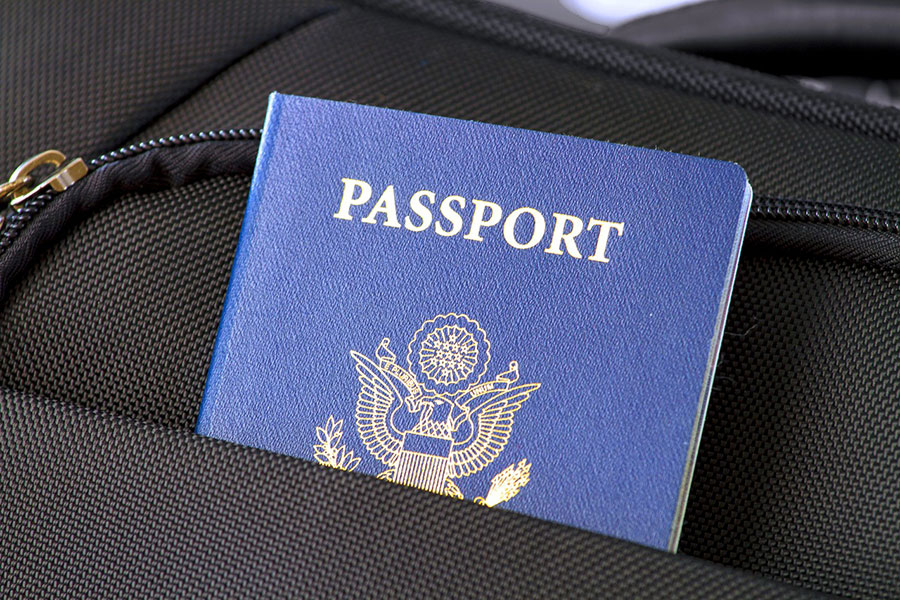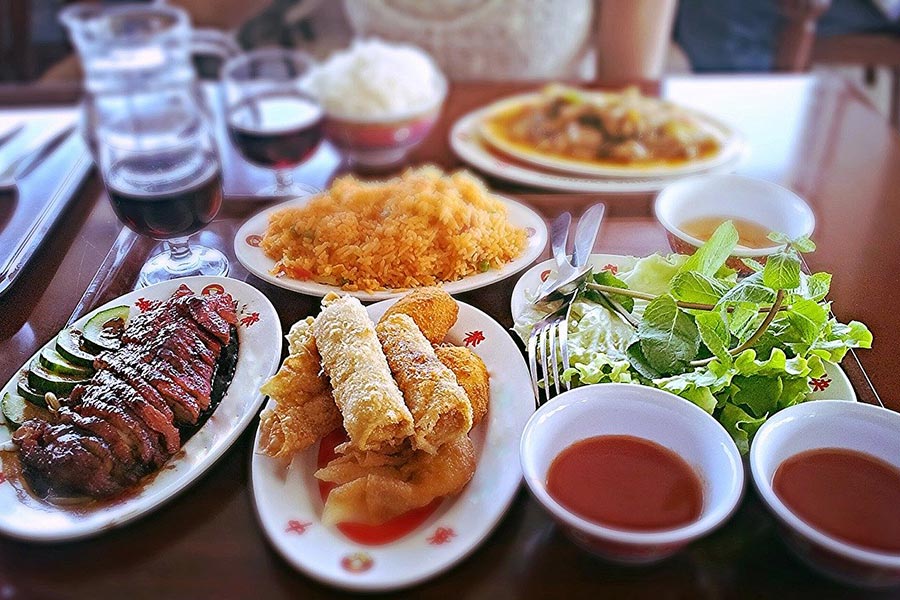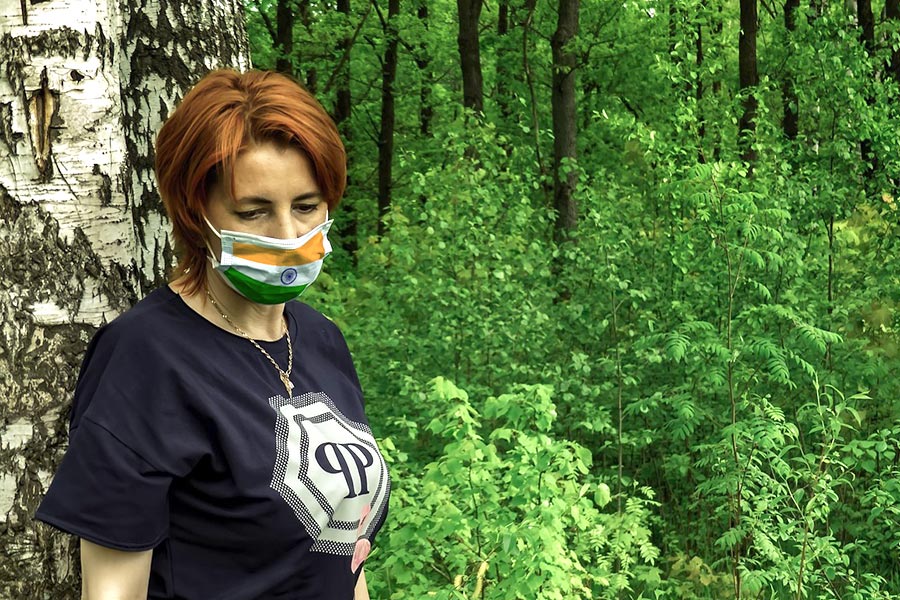In this article we will find out what are the essential steps to travel safely in India through some simple tips.
When we plan a trip, especially if it has as its destination a country that we do not know, it is good practice to get information on all those aspects that may in some way affect the conduct of our holiday, in order to be able to relax and appreciate the best context that we are going to visit.
Therefore, knowing in advance what are the customs of the place we are going to visit, documenting a little about the culture that distinguishes it, informing us about the climate, the rules that regulate the sanitary system and safety, will allow us to face with serenity the experience we have chosen to live.
India is undoubtedly a magical continent, full of contradictions that make it even more fascinating. In order to enjoy its beauties to the full, we must first of all organise our journey taking into account the health situation, the traditions that are very much alive in this wonderful country and the rules to be respected during the visit, especially for the sacred places.
The first aspect we need to take into account when organising our Indian tour is the documents required to enter the country. Let’s see, therefore, together, what are the precautions to be taken to avoid discomfort or setbacks, protecting your holiday from risks.
We are certain that India will enchant you with its magic!

SAFE TRAVEL INDIA: DOCUMENTS REQUIRED FOR ENTRY INTO THE COUNTRY
If you are travelling to countries outside the European Community, there are certain rules to follow. In particular, in India you need to have your passport valid for at least six months after its expiry date when you enter the country. You also need an Indian visa for entry called eVisa valid for short stays, which is required through a form to be filled out conveniently online, exclusively on the government website that we indicate in the article just linked, because it is easy to make a mistake and register by mistake on other unofficial sites. You will get your visa when you enter one of the entry points into the country, but remember that when you go through customs you will have to show your return ticket and proof that you have sufficient funds to stay for the duration of your visit. Details can be found in the article mentioned above.
Also remember that if you are only going to India for a stopover and your destination is Sri Lanka, the Maldives or Nepal, you will also need a transit visa, as otherwise you will not be allowed to leave the airport circuit.
INDIA TRAVELLING SAFE: ADVICE ON THE HEALTHCARE SITUATION
Like all countries where there is poverty and poor hygiene due to inadequate health control regulations, India also has some critical issues that should be kept in mind to prevent problems during the trip.
In order to travel safely in India, there are some endemic diseases from which it is necessary to protect oneself before departure, such as malaria, dengue and chikungunya, those diseases transmitted by mosquito bites, especially in the south and east of India, which intensify both during the monsoon season and immediately afterwards.
In order to avoid the risk of malaria caused by mosquito bites, you can protect yourself with a targeted prophylaxis or use repellents often, either in the form of a lotion (there are many on the market) or as a diffuser in the environment where you are staying, for example in hotel rooms. It is best to pack these products in your suitcase but, in any case, do not worry because you will find a wide range of them in the various supermarkets.
It should also be remembered that there is a high probability of incurring gastroenteritis, salmonellosis, and there are some areas where there have been recrudescences of cholera, meningitis and cases of typhoid.
Do not be impressed by this information. All you need to do is apply a few common sense rules and take a few precautions, such as washing your hands carefully and often, carrying a small bottle of disinfectant in your bag (the classic Amuchina will be fine) and making sure that you only drink any beverage, including water, from sealed bottles, without adding ice.
Please note that it is also important to pay attention to the possibility of AIDS infections, which can occur during unprotected sexual relations or through blood in cases of contact or transfusion: therefore avoid risky situations.
In order to travel safely in India, therefore, it is also a good idea to consider taking out health insurance that can cover both medical treatment and a possible return trip by air flight.
RECOMMENDED VACCINATIONS FOR SAFE TRAVELLING IN INDIA
Check whether you need to be vaccinated to enter India from your own country. If, on the other hand, you have travelled in recent months to countries considered to be at risk for yellow fever, such as Africa, Latin American countries or Papua and New Guinea, you are obliged to be vaccinated against this disease.
Apart from these specifics, if you want to travel safely in India, even in this respect, the suggestion is to contact your local ASL (Local Health Authority) to check whether your vaccination coverage is active or whether you need a booster shot.
Consult your doctor, who may suggest vaccination for certain diseases such as those listed below:
- Typhus Tifo
- Rabies (there are many stray dogs in India)Rabbia (in India vi sono molti cani randagi)
- Hepatitis A and B Epatite A e B
- Tetanus Tetano
- Cholera Colera
- Meningitis (vaccination recommended only if staying for long periods in rural areas during the monsoon period, both before and after the arrival of rain)Meningite (consigliato il vaccino solo se si soggiorna per lunghi periodi in zone rurali nel periodo dei monsoni, sia prima che dopo l’arrivo delle piogge)
- Poliomyelitis Poliomielite
- Japanese encephalitis (for those travelling and staying in rural areas and in the hot months from May to September).
As far as vaccinations are concerned, it will be up to your doctor to decide which ones you may need, depending on the assessment of your condition. Be sure to visit your local ASL (Local Health Authority) at least two months before your trip, so that you have plenty of time for both vaccinations and booster shots so that you do not concentrate everything in the days leading up to your departure.

SOME ADVICE ON FOOD AND DRINK FOR A SAFE EXPERIENCE IN INDIA
In addition to checking vaccinations before you leave, there are a few precautions you can take when you get there. One of the most common problems is dysentery. This can be caused by various factors, such as over-consumption of spices, having contracted an intestinal virus or simply having changed your diet. Take an anti-diarrhoeal medicine and an antibiotic specifically for this disorder (such as Imodium) with you to avoid discomfort while travelling. To avoid the problem, be very careful and follow these simple tips: do not eat food that has not been properly stored (not kept in the refrigerator or exposed to room temperature for a long time), do not eat meat or fish in excessively cheap restaurants, do not eat raw eggs, salads and fruit that has not been peeled (wash the fruit yourself with mineral water and peel it). We have already recommended drinking only sealed water or soft drinks, and in addition to not consuming drinks with ice (if you do not know what water it was made with), also avoid ice cream and fruit juices in bulk. If you do get sick, visit a local doctor, especially if the dysentery lasts for several days.
As we said before, you can take with you the medicines you are used to taking in such cases, but if you need them, remember that you can go to a pharmacy in India with a prescription from your doctor stating the active ingredient you need to take. Don’t be surprised if the pharmacist asks you how many pills you want of your medicine: Indian pharmacies don’t sell medicines in tins, but loose tablets and strictly without the description card.
Some travellers, in order to avoid problems as much as possible, adopt a vegetarian diet when they go to India. This is a practical solution that offers many variations, also because in this country a large percentage of the population is vegetarian, so you can count on a good choice of dishes.
SAFE TRAVEL IN INDIA: GENERAL INFORMATION
As in any country that has to deal with poverty and unemployment, petty crime can occur quite frequently in India. In December of last year, Parliament passed security measures, which led to some protests from the citizens, and it is possible that they may be repeated. It is therefore recommended to be careful and to stay away from situations where gatherings are being created, following the instructions of the local authorities.
Women tourists travelling alone are advised to be careful, to avoid going to isolated places and to keep an eye on what is happening around them, especially on transport or on the beach.
The potential risk of terrorist attacks deserves a special mention. The most at-risk destinations are, of course, places where there is a large concentration of people, such as shopping malls or crowded places of worship. In any case, the authorities have organised an extensive control network and security has been raised to the highest level. These events, however, were most concentrated in the Kashmir region. Travellers are advised to be vigilant during their travels.
SOME ADVICE ON SECURITY:
- take care to contact the Embassy or Consulate of reference, and to gather further information, give your details and report your arrival in the country, specifying the dates of your stay and your contact details;
- avoid taking satellite phones with you for the reasons described above;
- avoid passing near places where political protests or demonstrations are taking place;
- formally ask the drivers of taxis or other vehicles you use to travel to be careful when driving. The country’s roads are in precarious conditions. Remember to take out an insurance policy to cover any inconveniences, including medical ones;
- Try to avoid night-time journeys by car or bus to avoid accidents, which are very frequent due to animals wandering at night and/or various obstacles on the road. For longer journeys, take the train or plane;
- make sure that you have already booked your hotel in India before you leave;
- avoid accepting car rides offered by strangers;
- book the transfers you will make after landing in India through your agency. There have been reports of taxi drivers picking up travellers at the airport and diverting them to destinations other than their own hotel, saying that it is full or that there are dangerous riots in the city. This trick is aimed at taking tourists to much more expensive establishments. The advice is to have a mobile phone with active international roaming service to call the hotel you have booked in order to check availability;
- carefully avoid hitchhiking;
- be careful and always use reliable and experienced agencies that offer certified guides;
- also be careful when shopping. In many cases tourists have found themselves being scammed by unfair traders, and have reported this to the Embassy;
- be respectful of the religious traditions of the place you are visiting by adopting clothing that is appropriate for places of worship and respect the culture in general of the host country;
- take care to be respectful of the customs of the place, especially if there are restrictions on the entrance of tourists to particular sacred places (Hindu temples or mosques), honouring the rules for visiting statues or animals considered sacred. The population may not appreciate any lack of respect on the part of the tourist and may even react aggressively;
- Absolutely avoid taking drugs or coming into contact with drug dealers. Do not allow anyone to involve you in illegal activities;
- if for some reason you are the victim of an assault, contact the local police immediately to report it by dialling ‘100’ (‘112’ from a mobile phone);
- for couples: avoid public displays of affection;
- be careful in the south-eastern coastal area of India, especially in the Andaman and Nicobar archipelago, because the presence of the saltwater crocodile has been detected there;
- as a good rule, avoid photographing airports, military barracks, bridges or sites of strategic interest as this is prohibited by law.
It has been reported that the Internet connection in some parts of the country, specifically in the Andaman and Nicobar Islands, is rather poor, both in terms of WI-FI and 3G or 4G networks.
Finally, we recommend that you do not bring valuables or large amounts of cash with you on your trip.
Another tip for clothing, specifically for women, is to always cover your shoulders when visiting places of worship and generally preferably wear long trousers and a shawl. Avoid low-cut clothes and try to be careful while travelling. It is better if you are accompanied by a man to avoid being pestered in the street. Do not return insistent glances, as this can lead to misunderstandings.
Finally, try to drink constantly to avoid dehydration, and keep an eye on your rucksack in areas with a high concentration of people, avoiding markets, places where pickpockets may abound and people who tend to harass.
Finally, don’t forget to pack a bottle of high-protection sunscreen.

TRAVELLING SAFELY IN INDIA
So far we have outlined a few tips to avoid running into various problems, but in reality travelling in the Indian continent is safe. The various popular tourist destinations, such as New Delhi, Agra, Jaipur, Varanasi and the cities of the so-called ‘Golden Triangle’ have long been highly organised places to welcome foreign tourists.
The local population has long been familiar with the influx of tourists and is open to welcoming those who wish to discover their country, while also tolerating different religious faiths and lifestyles. Any problems related to misunderstandings for reservations or transportation can be solved by planning with your agency of reference. We at Conscious Journeys take care of this aspect with great attention during the whole stay in India.
Using local guides with specific training, we offer the possibility to visit the most beautiful places both in the north and in the south of the country. Thanks to this type of organisation, a trip to India can be enjoyed in complete tranquillity by couples, groups, families or even individual travellers who decide to have this wonderful experience in a magical land.
SAFE TRAVEL IN INDIA: WHAT TO PACK IN YOUR SUITCASE
Regarding what to pack for your trip to India, we can suggest that you bring with you clothes that are light and allow you to travel comfortably. Your shoes should also be comfortable. Don’t forget a hat and glasses to protect you from the sun.
In the linked article you will find an accurate description of what you will need during your trip.


